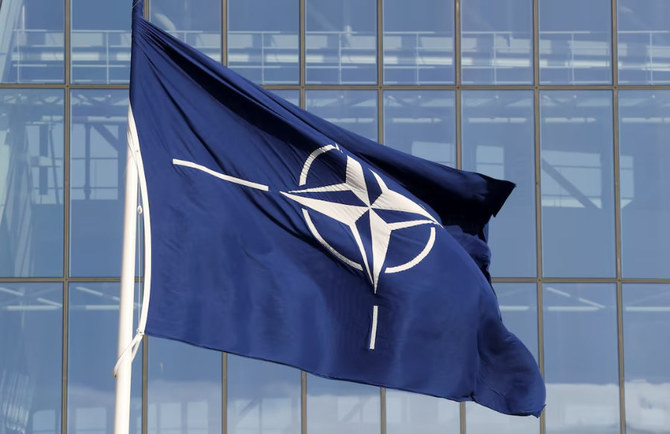
With NATO marking its 75th anniversary last Thursday, the idea that it is free-riding on the US remains a live issue. While Donald Trump has repeatedly criticized America’s transatlantic allies for spending too little on defense, it is worth remembering that presidents going back to Dwight Eisenhower (including John Kennedy, Richard Nixon and Barack Obama) also pressured the Europeans to share more of the burden. After Lyndon Johnson’s Defense Secretary Robert McNamara suggested that the US might reduce its troop levels in Europe if the Germans did not step up, the two countries entered an “offset agreement,” whereby Germany would compensate the US by purchasing American goods.
But until February of this year, no US president or presidential candidate had ever directly jeopardized the safety of NATO allies by inviting foreign aggressors to attack “delinquent” member states. Trump’s offensive comments misleadingly equated the NATO defense spending target (2 percent of gross domestic product) with direct NATO payments.
To some Americans, Trump’s fairness concerns may seem valid. Why should the US pay twice as much as the average NATO ally when it is geographically removed from all major conflict zones?
Part of the answer is that America’s massive military spending is not simply a function of its NATO commitments; rather, it follows from a strategic objective to maintain unmatched military and technological supremacy in the face of escalating great power rivalries. Like Greece (whose defense spending ratio is even higher than America’s), the US exceeds the 2 percent target because doing so is in its interest. The cost of maintaining 200 US active-duty bases (90 percent of the total) around the world accounts for only 4 percent of overall US military expenditures. NATO is a common good that results from the pursuit of a private national good: US military superiority.
In Trump’s view, the US is “a debtor nation, we spend so much on the military, but the military isn’t for us … and many of these countries are tremendously rich countries.” While a majority of Americans support NATO, Trump’s position resonates with those who view America’s global responsibilities in the context of their own dwindling economic fortunes.
But these concerns about fiscal overspending exaggerate the problem, not least because they ignore the dollar’s international status and the fact that a significant portion of US public debt is held domestically. Those arguing that military expenditures are a primary driver of US debt have little to no evidence and they consistently fail to weigh the costs against the benefits that such spending delivers. Asymmetrical security relationships allow the US to exert influence and sustain its preferred form of global order through strategic advantages, information sharing and diplomatic leverage, and to encourage adaptation across a broad network of dependent allies.
NATO is the blue chip in the US security umbrella — the instrument that allows it to respond rapidly to threats and challenges anywhere in the world. The forward presence of US military forces serves as a deterrent against potential adversaries, reducing the likelihood of conflicts and military challenges to US interests. This global network facilitates intelligence sharing among allies and provides the US with critical information on security risks, enhancing its ability to anticipate threats and counter strategic competitors like China and Russia. The US can and does use these tools to influence outcomes in key regions, support democracy and human rights and fight terrorism.
By providing defense and security, the US can foster economic cooperation and promote its own values.
Carla Norrlof
Alliances are a distinctive feature of America’s global strategy, setting it apart from other great powers. By providing defense and security, the US can also foster economic cooperation and promote its own values. At a time when digital warfare respects no borders, NATO’s intelligence sharing, joint exercises and collective cyber-defense mechanisms all reinforce America’s ability to counter new economic and security threats.
Moreover, its position at the center of regional and global security networks gives the US an unmatched ability to facilitate or obstruct international cooperation as it sees fit. Almost no major decisions or missions can be carried out unless they serve US interests. No other country can broker the kind of cooperation that the US can. NATO’s strategic shift to address the rise of China through engagement with Indo-Pacific partners underscores both the alliance’s adaptability and America’s unique coordinating power.
Nor are these benefits confined to matters of great power rivalry. For example, the US Southern Command coordinates counternarcotics collaboration between NATO (specifically the Netherlands) and non-NATO countries such as Colombia and Panama. That not only bolsters security but also cuts down on illicit financial flows that could end up going to terrorist organizations and other bad actors.
By the same token, US-led allied efforts help to protect global trade routes — particularly vital sea lanes — ensuring the free flow of trade and energy supplies. A secure global commons provides the US with economic leverage over allies and partners, allowing it to shape economic policies, trade agreements and investment decisions according to its own interests.
Generally speaking, shaping norms and aligning interests across international networks reduces protection costs, alleviates the need for military coercion within the network and augments its effectiveness when used externally. From a security perspective, if the US becomes less willing to fund a potent military capability through NATO and less willing to engage with and protect its allies, it will start to look more like China or Russia. It would still be formidable; but it would be less influential and less benign.
Europeans are already preparing for the worst and pushing forward with their project of strategic autonomy. Citing vassal risks from great power competition, French President Emmanuel Macron favors reducing Europe’s reliance on others, particularly the US. By adopting a more assertive stance against Russian belligerence, advocating for Ukraine’s future NATO membership and leveraging EU enlargement as a geopolitical tool, France has realigned its position more closely with that of Poland, the Baltic countries and the Czech Republic.
Americans must understand that NATO is not just a mechanism for protecting allies; it is an essential part of a comprehensive strategy that promotes their own interests and sustains their country’s global leadership position. The US would gain nothing by withdrawing from the transatlantic alliance. On the contrary, doing so would reduce US influence without significantly reducing its military spending.
• Carla Norrlof, professor of political science at the University of Toronto, is a non-resident senior fellow at the Atlantic Council.
©Project Syndicate












